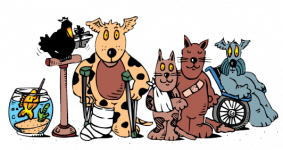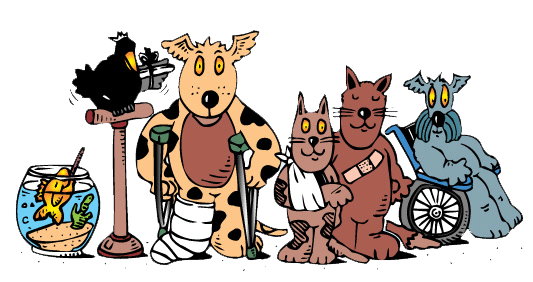24 Hour Vet Sarina
From a regular check-up, to complete dental care, Sarina Veterinary Surgery has a variety of services available for the complete care of all your family pets. We have services available for horses and cattle as well.
Contact us today to find out more.
Veterinary Health Checks
Regular health checks are the easiest way to ensure your pet is healthy and happy. Our vets can pre-empt issues with skin, ears teeth, heart and conditions such as osteoarthritis before they can become severe. We recommend a full examination every year. These are also a great opportunity to ask our vets about any worries or issues you have regarding the well-being of your family pet.
As animals get older, blood tests become very important. Regular blood tests help warn you of any liver or kidney issues that might be on the horizon. This means we’ll have the ability to treat your pet before any major illness can occur, helping them live a longer, more enjoyable life. Contact us today.
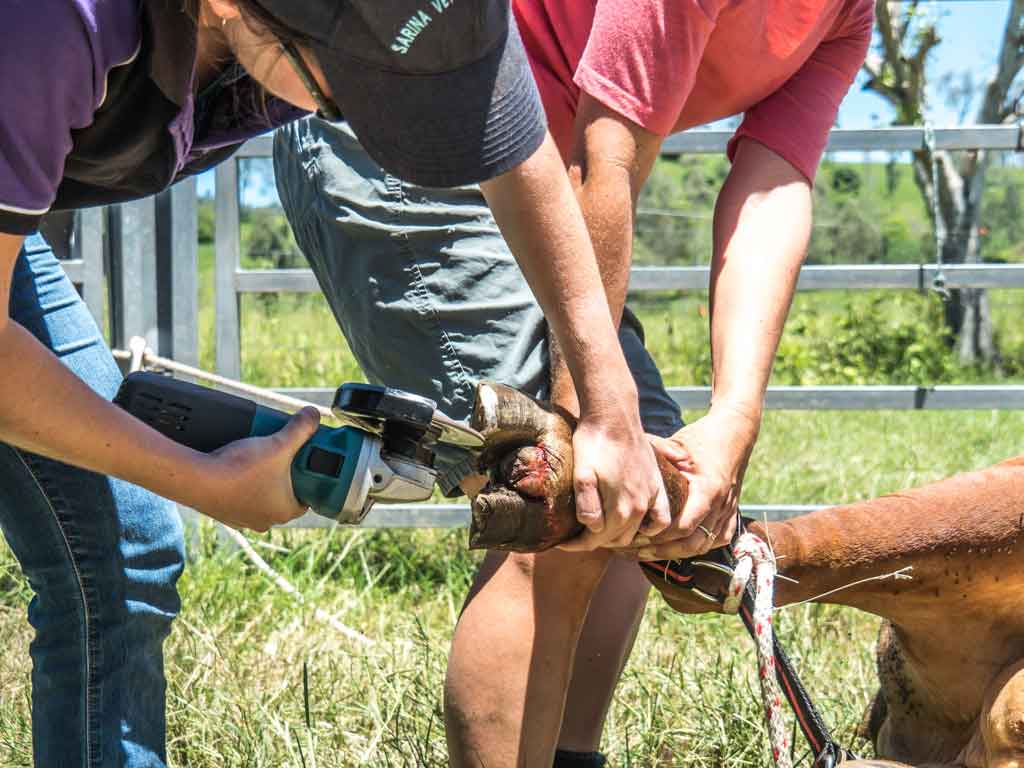
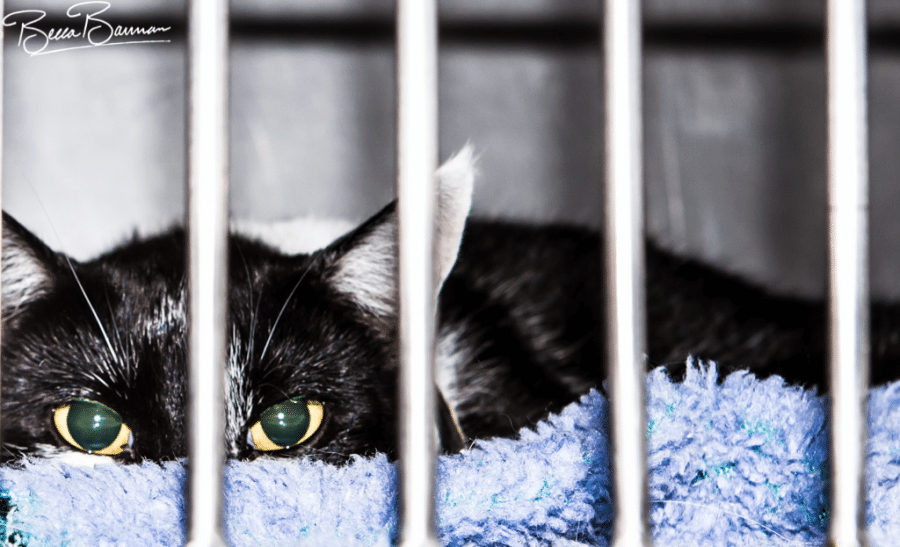
Heartworm Prevention In Animals
Heartworms are transmitted via mosquitoes. When a mosquito feeds on an infected dog, it can suck up microfilariae, which mature into heartworm larvae. When that mosquito then feeds on another animal, it can transmit those larvae, which will then travel through the circulatory system to the hearts and lungs, where they will grow into adult worms and reproduce.
Heartworms can cause a range of health issues in your pets, including:
- A dry persistent cough
- Not being able to exercise
- Weight loss
- Weakness
- Congestive heart failure
- Breathing difficulties
- Organ damage
- Distended abdomen
- Collapse
When it comes to heartworms, prevention is better than a cure. With regular treatment it is easy to avoid infection and keep your pet healthy year-round. We offer both daily and monthly tablets, as well as a yearly injection to help prevent infection.
If it has been a while since you last treated your dog to heartworm medication, it’s best to get a blood test done first so we can be sure they aren’t infected
If your dog has already contracted heartworms, don’t worry. We have treatment options available to prevent the worst-case scenario. Daily tablets and serious injections will be administered over a 6-month period. Even once they’ve been killed, heartworms can cause a range of health issues for your pets, which is why we prevention is always the better option.
And remember, cats can also get heartworms!
Flea & Tick Prevention
Flea and tick prevention is a key component to looking after your pets. Fleas can cause severe irritation for your pets and can even lead to hair loss and pain. Ticks can cause anaemia and paralysis, which in worst-case scenarios, can lead to death.
Our vets can give you advice on the best treatment methods, as well as discuss the range of flea and tick prevention products we have available.
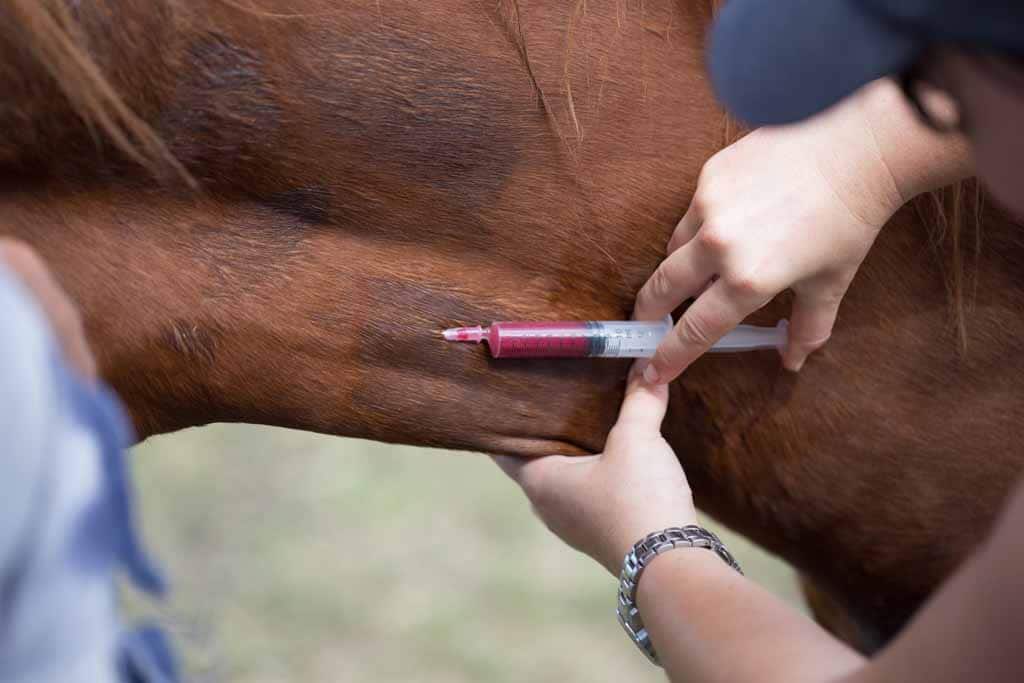
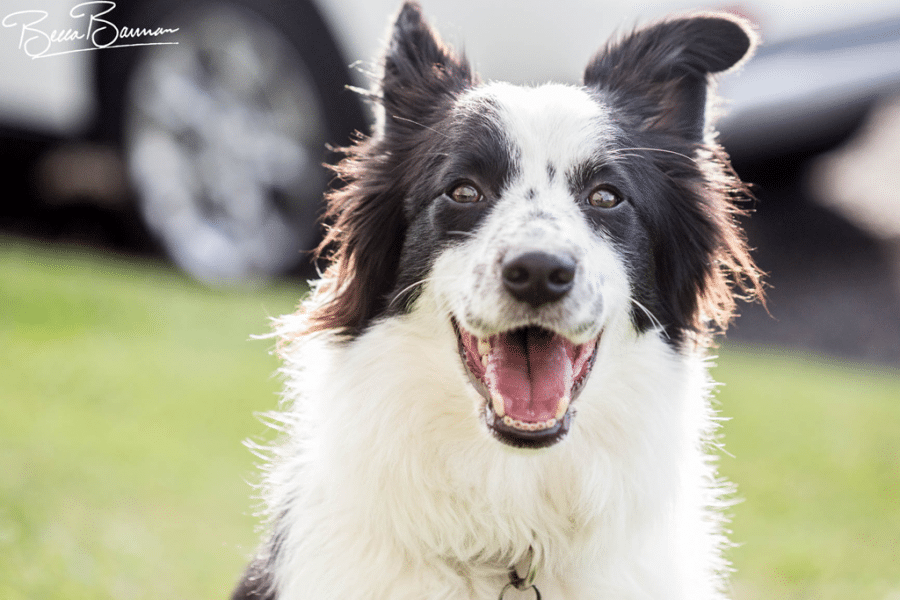
Intestinal Worm Prevention
Aside from heartworms, dogs, cats and other pets are susceptible to a variety of other worms which can cause serious health issues. The most commonly found ones include:
- Hookworms – These attach to the inside of the intestines and suck blood. In serious cases, your pet (especially puppies and kittens) can become very anaemic and may require a blood transfusion.
- Roundworms – Carried by your pets, roundworms can affect humans and are especially dangerous for young children.
- Tapeworms – Generally found hanging from your pets rear-end, these are actually just the egg segments and not the worm. Tapeworms can grow to several metres in length and can sometimes take 4 times the regular amount of medication to kill.
- Whipworms – These worms will cause your pet to have watery, bloody diarrhoea.
While intestinal worms can be deadly, they are relatively easy to prevent with regular worming tablets, paste or injections. Puppies can also be given a liquid. A good worming regime is:
- Puppies & Kittens – Every 2 weeks until they are 3 months old. Then monthly until they reach 6 months.
- Adults – Every 3 months.
Pet Vaccinations
Vaccinations are important to keep your pet from contracting a number of potentially fatal diseases. Dogs, cats, horses and cattle all require regular vaccinations to maintain their immunity. The type of vaccine given varies depending on each individual situation. We recommend annual vaccinations to be included with your pets health check.
Leptospirosis Australis is a very important vaccine that is specific to coastal, Central and Northern Queensland. It’s carried by rats and can be inhaled if a dog sniffs an area where a rat may have urinated. It’s a zoonotic disease, which means that people can get it too.
We recommend vaccinating your horses with the Tetanus, Strangles and Hendra vaccines. As Hendra is lethal to both horses and people, this vaccination is something that we are passionate about.
Bats carry Hendra virus, and horses can start excreting the virus before they even start to show signs. If your horse is not up to date with its Hendra vaccinations, we may refuse to treat it.
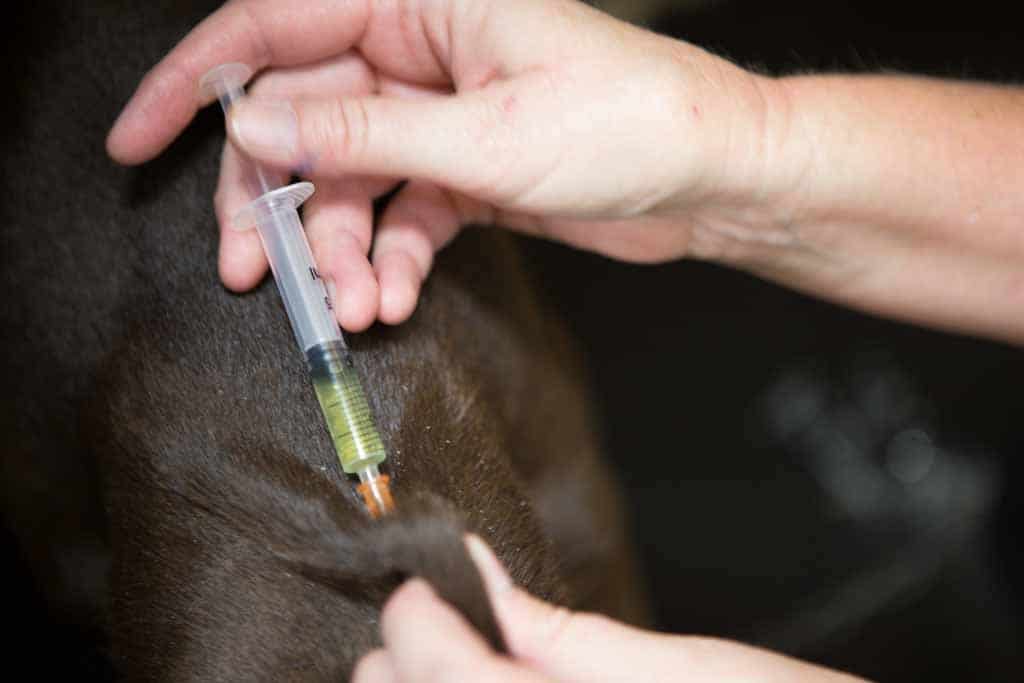
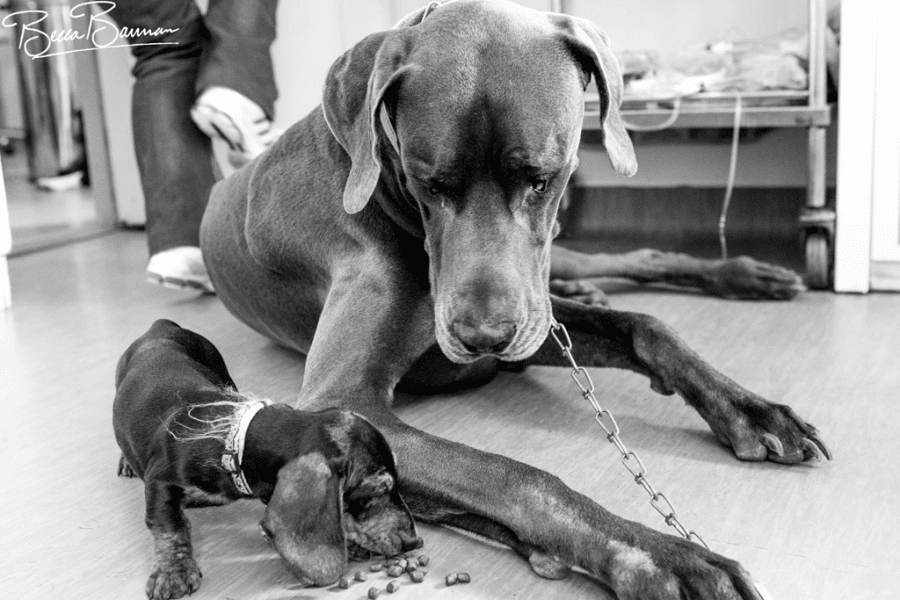
Pet Microchipping
Microchipping is easily the best way to find a lost pet. It is also a legal requirement for all dogs to be chipped. The microchip is about the size of a grain of rice and has a unique number encoded on it that can be read with a scanner.
We register the chips with a national database so your pet can be traced anywhere. Other than a DNA test, a microchip is the only way your pet can be legally identified as yours.
For peace of mind, we can put your pet’s unique number on file here. Then if it escapes and is brought to us, we can quickly identify it and then contact you so you’ll be reunited as soon as possible.
For all pet microchipping needs, contact our Sarina vet clinic today.
Digital X-rays
Great for getting incredible amounts of detail, digital x-rays enable our specialists to get an in-depth view of your pets and enables us to give you the best advice possible.
We ensure your pets are always comfortable throughout the procedure.
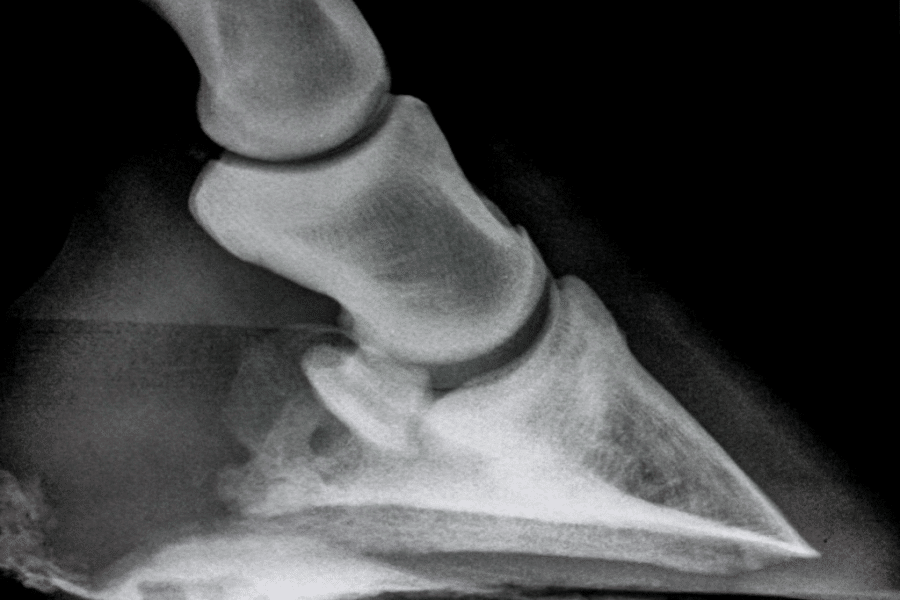
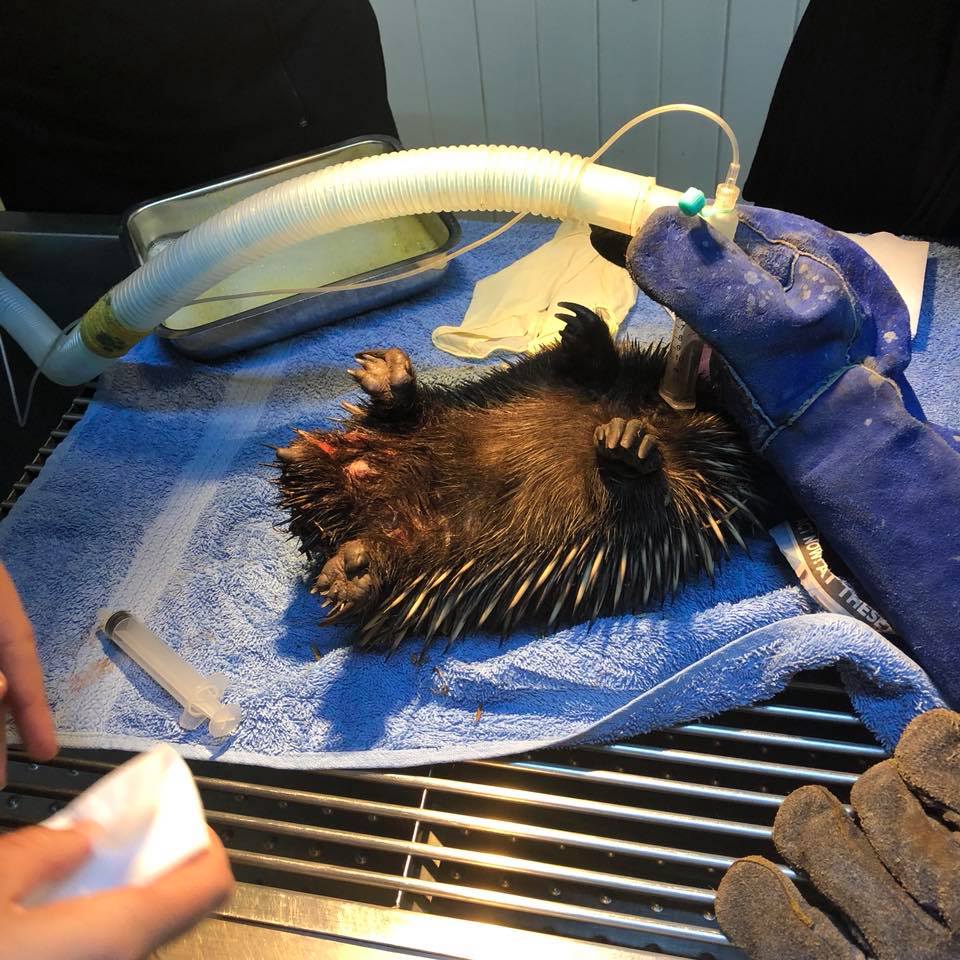
Surgical Services
Surgery can be a very stressful time for both owners and pets. We are passionate about making the whole process as smooth as possible for you. Your pet will need to be fasted through the night (no breakfast). When they come in to our vet clinic on Broad Street, on the day of their operation, they will be greeted by a staff member and weighed. You will be required to sign a permission form after we have discussed what the surgery entails with you. Please voice any concerns or questions with our staff at this time.
After we take your pet through to the hospital, they will be thoroughly examined by a certified nurse. We may take a blood sample to perform a pre-anaesthetic blood test to evaluate your pet’s internal health. Your pet may be put on a drip to help support them while they are in surgery. They’ll be given a premedication/sedation (including pain relief) that calms your pet and allows for a smoother anaesthetic. Once the premedication has had time to work, we’ll give your pet an injection to induce them into full anaesthesia. A tube will then be placed in their airways to deliver a gas anaesthetic that helps maintain it.
Your pet’s surgical site will be clipped and cleaned. A nurse will be with the veterinarian performing the surgery to monitor your pet’s anaesthesia the entire time. After surgery is finished, a nurse will stay with your pet until they wake up. When they go home, a staff member will explain the discharge instructions and any medications that are specific to your pet’s surgery.
If you’re concerned, or want to know more about our surgical procedures, don’t hesitate to call.
Pet Dentistry
Poor dental care can cause a range of health issues in dogs, cats and horses. Dogs and cats can develop significant build-up on their teeth over time; our team can perform scale and polish procedures under general anaesthetic to help keep teeth clean and gums healthy. Sometimes extractions are also required.
Horse teeth continually grow and require floating/rasping to prevent sharp, pointed edges cutting their tongue and cheeks. We use a powerfloat to make this procedure as quick and comfortable as possible.
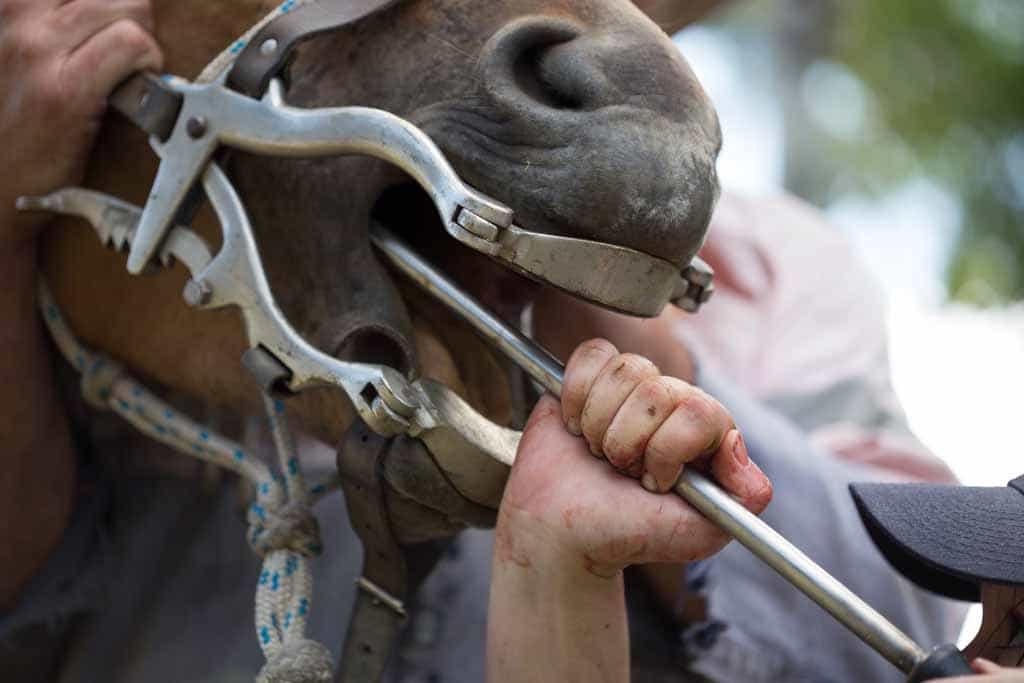
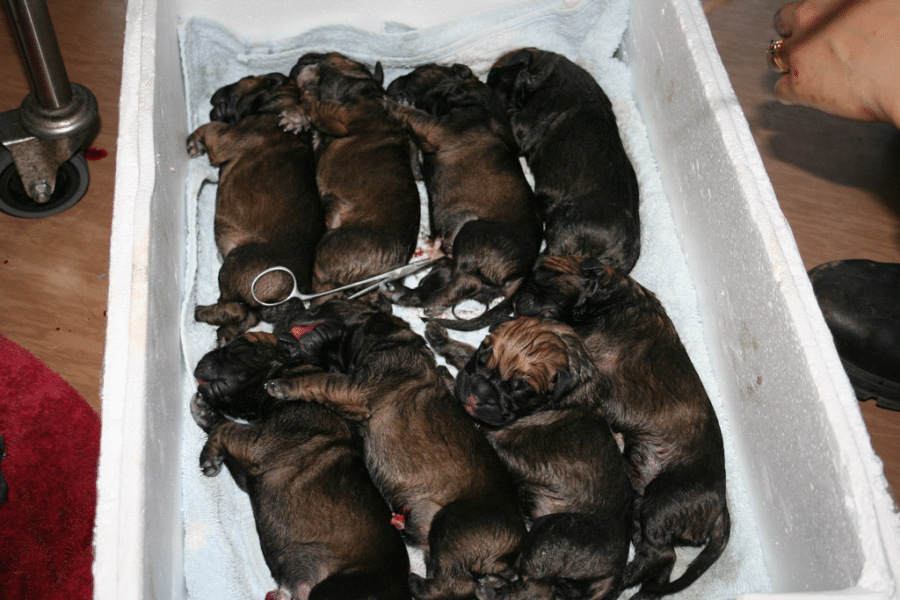
Ultrasound Pregnancy Testing For Animals
Think your pets or livestock might be pregnant? Here at Sarina Veterinary Surgery, we use ultrasound to detect pregnancy in a range of animals, including cattle, goats, sheep, cats, dogs and horses.
Pregnancy can be detected from 3–4 weeks in dogs, and as little as 14 days in horses.
Contact our team today to book your pet in for an ultrasound test.
On-site Pathology
When it comes to determining what is wrong with a sick pet, speed is often crucial. With our in-house blood analysis equipment and a variety of bedside tests, our team at Sarina Veterinary Surgery can get blood results within 10 minutes to an hour. This can be the difference between life and death and allows us to provide the correct treatment quickly.
We can perform complete blood counts—which give us detailed information on red and white blood cells, pcv, and a biochemistry analysis of kidney, liver and muscles—within half an hour of sample collection. We can even analyse urine samples while you wait.
Getting quick results on tests means we can start treatments quicker, it’s also especially important on weekends when courier services aren’t available to transport samples to Brisbane labs.
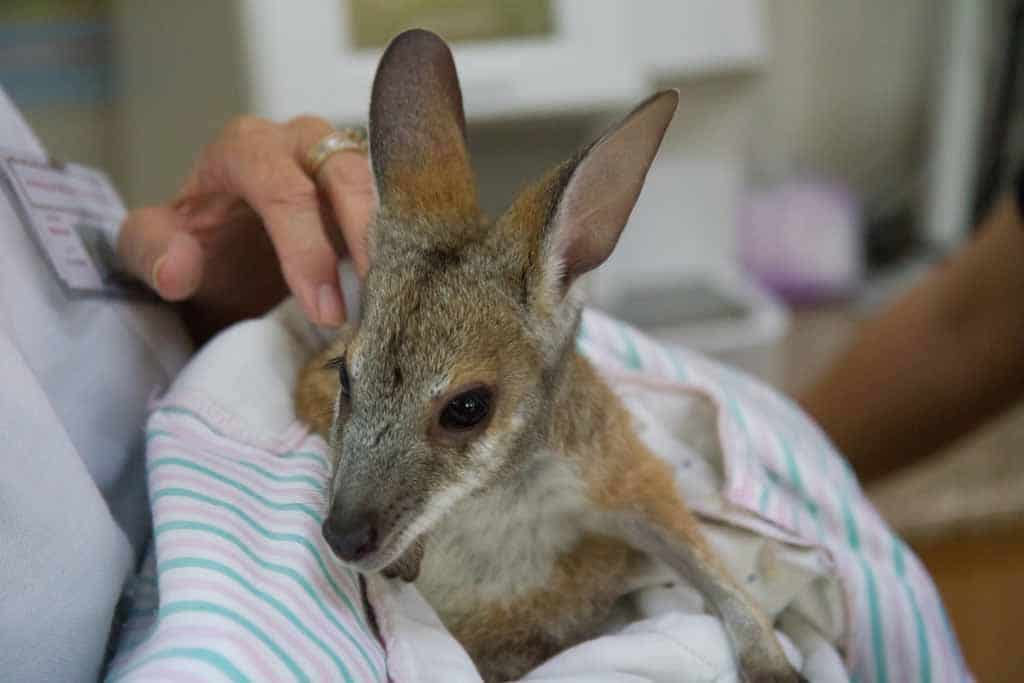
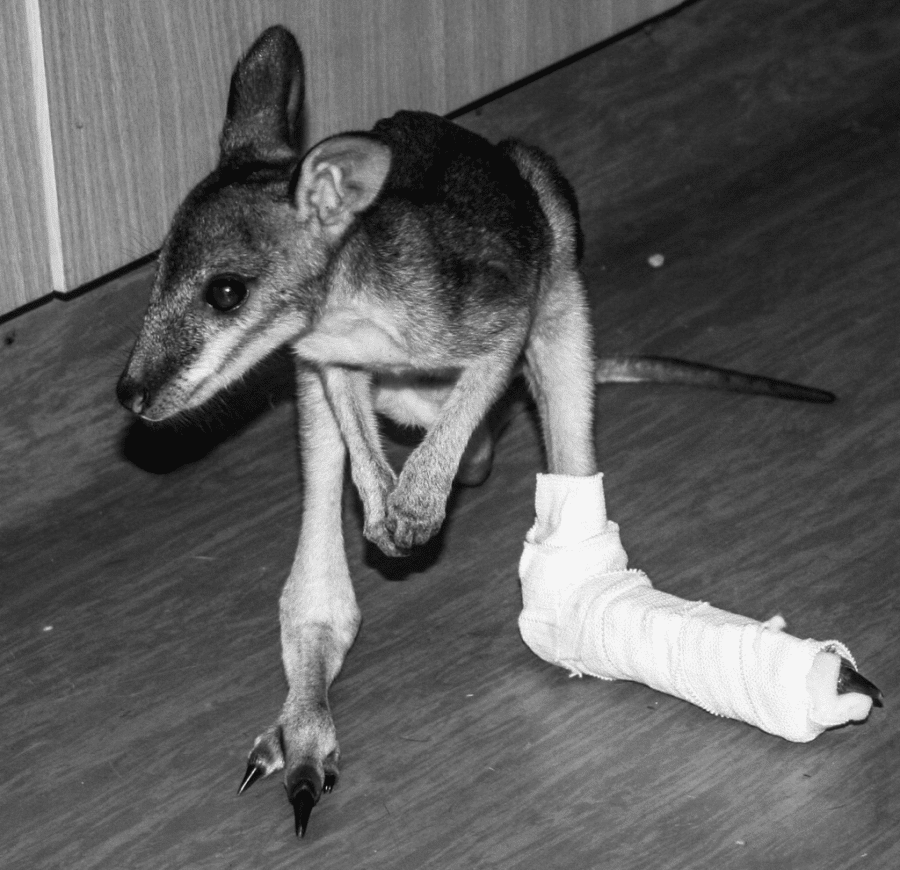
Diagnostics
We also have a range of other services to complement our on-site pathology, including:
- Ultrasound for equine, canine & feline pregnancy diagnosis
- Video endoscope for internal examination of intestines, stomach and airways. As well as the removal of foreign bodies
- Tonovet – to measure pressure in eyes to diagnose glaucoma
- ECG machine to check your pet’s heart
- Digital x-rays that can be burnt to disc
- Stains & microscopic examination
- Submission of samples for laboratory investigation when required
Want to know more about our on-site diagnostics or general veterinary services? Contact our office, or browse through our FAQ to find out more.
Nutritional Advice
Just like us, our pets need good quality food to stay healthy. At Sarina Veterinary Surgery, we stock a variety of wet and dry food that’s suitable for most pets.
Of course, if your pet has special dietary requirements, we can usually order it in for you. We also carry a variety of common prescription diet foods, to make keeping that fussy pet healthy easier.
If you’re not sure what food your pet should be eating, our team is more than happy to give you the right advice.
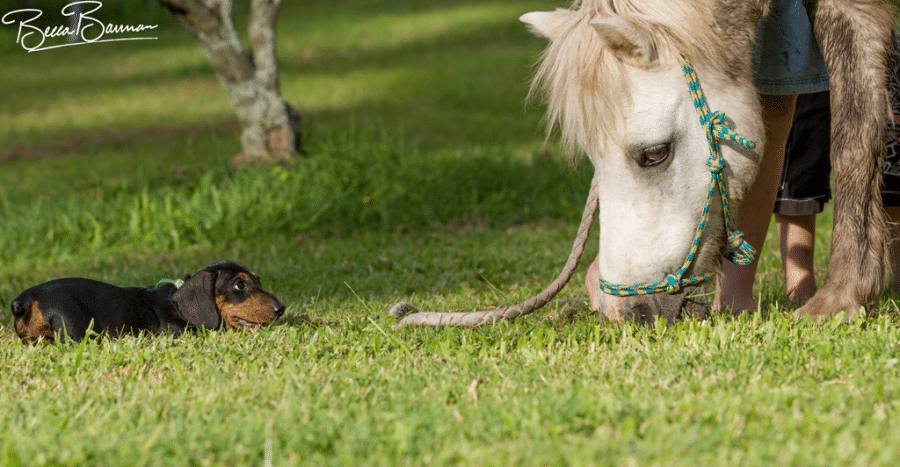
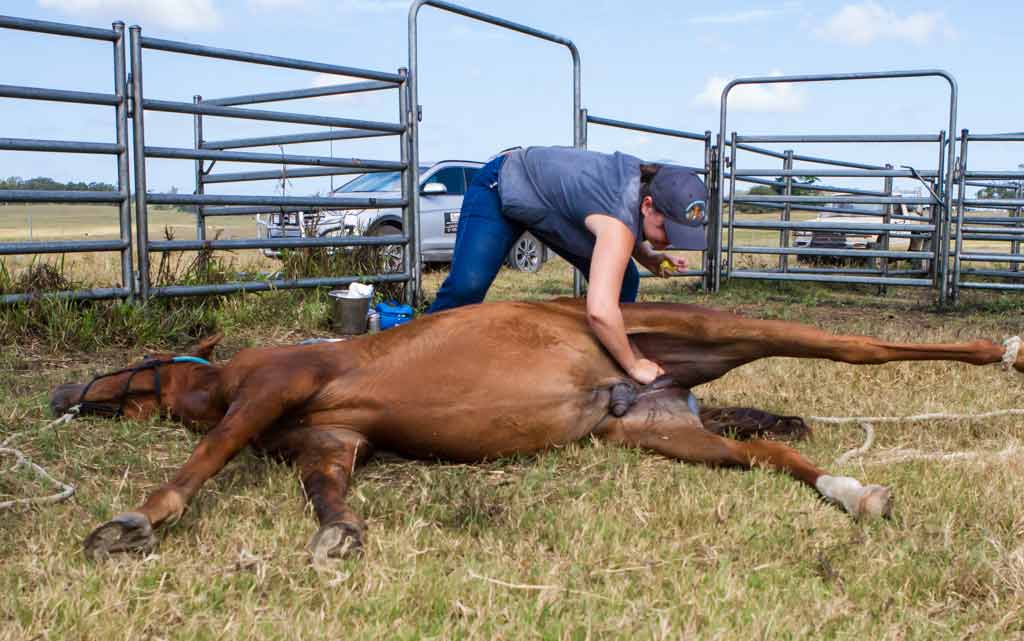
Horses & Cattle
Aside from standard household pets, we also offer veterinary services to horses and cattle throughout the Mackay and Sarina region. These services include:
- Equine ultrasound pregnancy testing
- Horse castration & freeze branding
- Manual cattle pregnancy testing
- Accredited VBBSE (Veterinary Bull Breeding Soundness Examination) semen testing
- Equine dental care using a power float
- Large animal x-ray service
- Artificial insemination of cattle
- Hendra vaccinations
Want to know more about our on-site diagnostics or general veterinary services? Contact our office, or browse through our FAQ to find out more.
Artificial & Surgical Insemination
Canine reproduction can be very tricky. We have been doing surgical inseminations with frozen dog semen for a number of years now, and have had great success. Insemination with frozen semen is very precise. We only have a 6-hour window in which to get the semen into the bitch.
To get the timing right, we need to do a series of blood tests starting from day 5 of bleeding. These samples need to be taken over a number of days, and the progesterone levels measured and graphed. This will give us the optimal time to inseminate.
We have produced Basset hounds, American Staffordshire Bull Terriers, German Shepherds, English Bulldogs, Whippets and Cattle Dogs over the years. It’s important that if you’re considering frozen insemination as an option that you contact the surgery with plenty of time to spare, so that we can make sure that everything is organised.
We do store some cattle AI straws at the surgery for artificial insemination of cows. We can inseminate using these straws or we can use ones you may have bought.
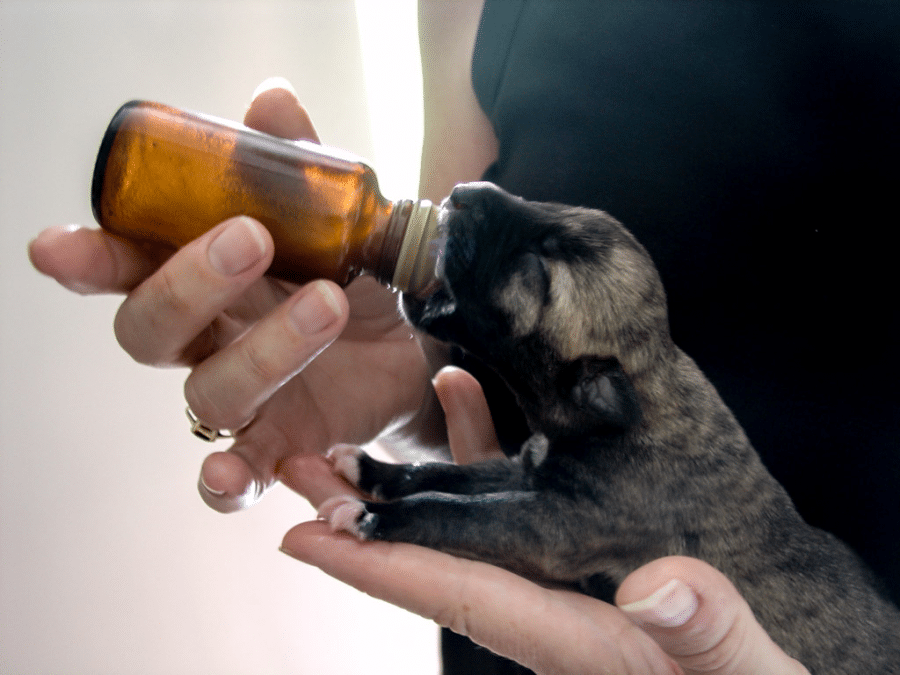

Pet Hospitalisation
After surgery, your pet may need to be hospitalised for a period of time. At Sarina Veterinary Surgery, our custom-built cages have been installed with the comfort and well-being of your pets in mind.
Each cage is made with stainless steel, allowing us to clean them easily and ensuring a sterile environment that prevents the spread of infectious diseases. They each have a drainage system and rubber matting, to keep your pet away from any accidents they may have.
Each animal gets a wool-like blanket that helps to draw moisture away from them, and our nurses regularly take our patients for walks on the grass so they are able to stretch their legs and go to the toilet.
24/7 Emergency Vet Care
At Sarina Veterinary Surgery, there is a vet on-call 24/7 to cater for any disasters or unwell animals. Please phone the surgery on (07) 4956 1897, you will get a recorded message, then phone the mobile number you will be given, to speak to the on-call veterinarian.
Our surgery is fully equipped to handle nearly any emergency for small animals. Our staff are trained in emergency medicine so they can make quick, correct decisions regarding the best treatment of your pet in a variety of high-pressure and high-stress situations.
Large animal emergencies are seen on location. A few of the more common emergency situations where you can help your pet before calling us are:
⦁ Typically, dogs froth at the mouth, but they may rub their mouth along the ground or paw at their mouth. Their gums are usually very red. Use a cloth and bucket of water to wash your dog’s mouth out. Make sure you wash around the tongue as well.
⦁ If your dog starts convulsing, they must come in ASAP.
⦁ If your dog has killed a snake and may have been bitten, please bring the dead snake into the surgery for identification. Knowing what snake has bitten your animal allows us to treat any bite promptly.
⦁ If your animal is bleeding profusely from an injury, you can apply a pressure bandage before bringing them to the surgery.
⦁ If your pet is retching, or having trouble breathing or walking, it could have a paralysis tick.
⦁ Search your pet, and if you find a tick, remove it and place it in a bag/jar, and bring it in for identification.
⦁ Do not feed your pet or let them have water.
⦁ If your pet is showing signs of tick paralysis before you remove the tick, you must bring it in for treatment, as they can continue to deteriorate for up to 24 hours after removal of the tick.
⦁ Please be careful moving an animal in pain, as they will often bite.
⦁ Please do not give animals human medication, especially aspirin and panadol.
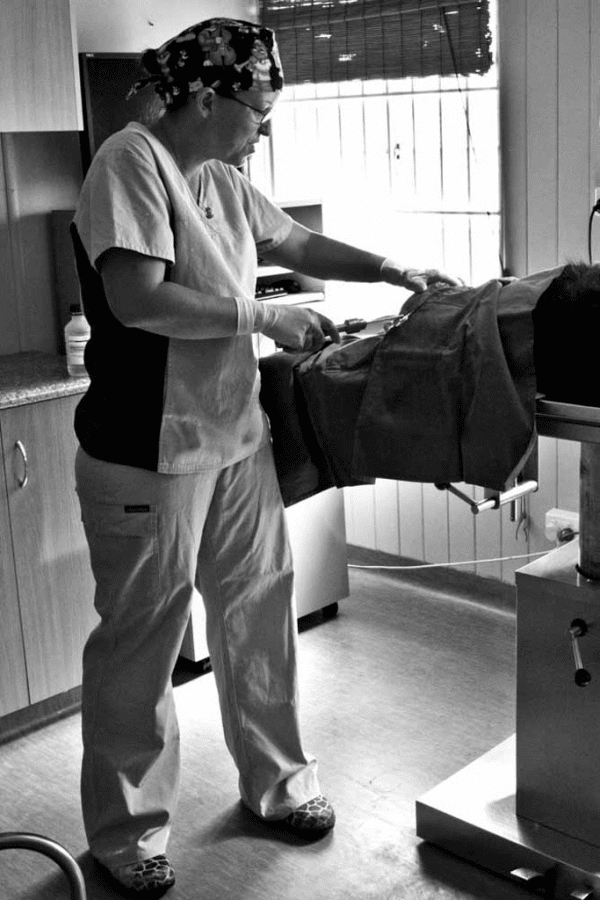

Hydrobathing
Aside from our veterinary services, our clinic also provides hydrobathing by appointment. Hydrobaths are a great way to clean loose skin cells and hair from your pet and we can use medicated shampoos if needed.
If you’re looking to have your pet hydrobathed, contact our office and speak to our friendly team today.
